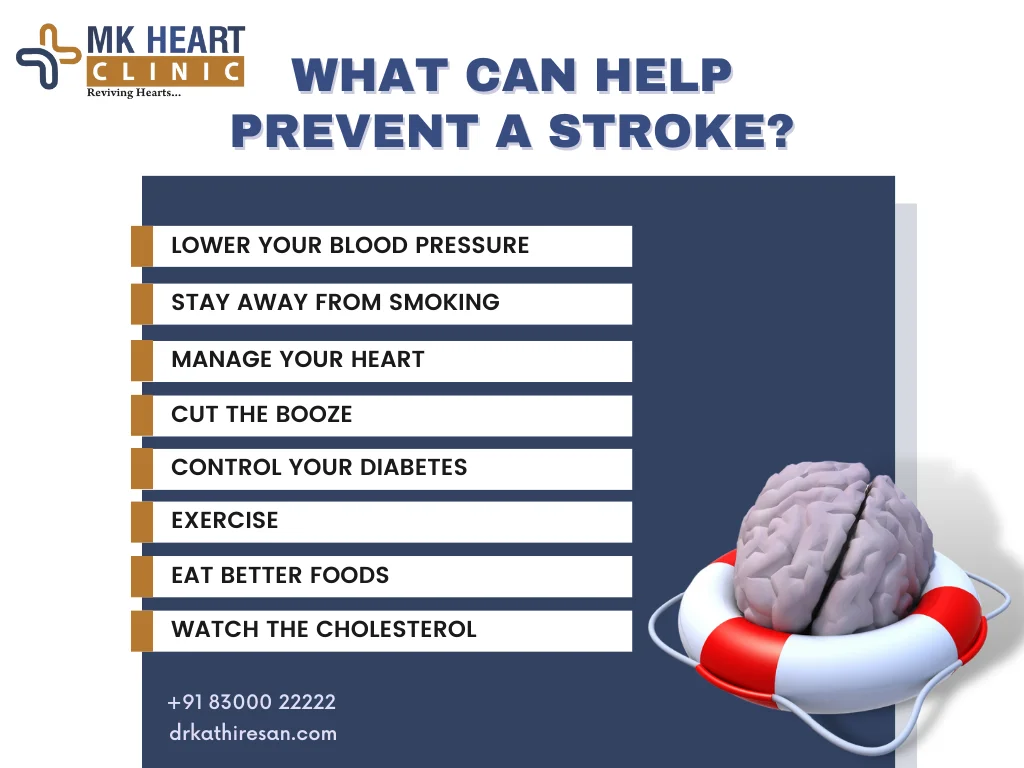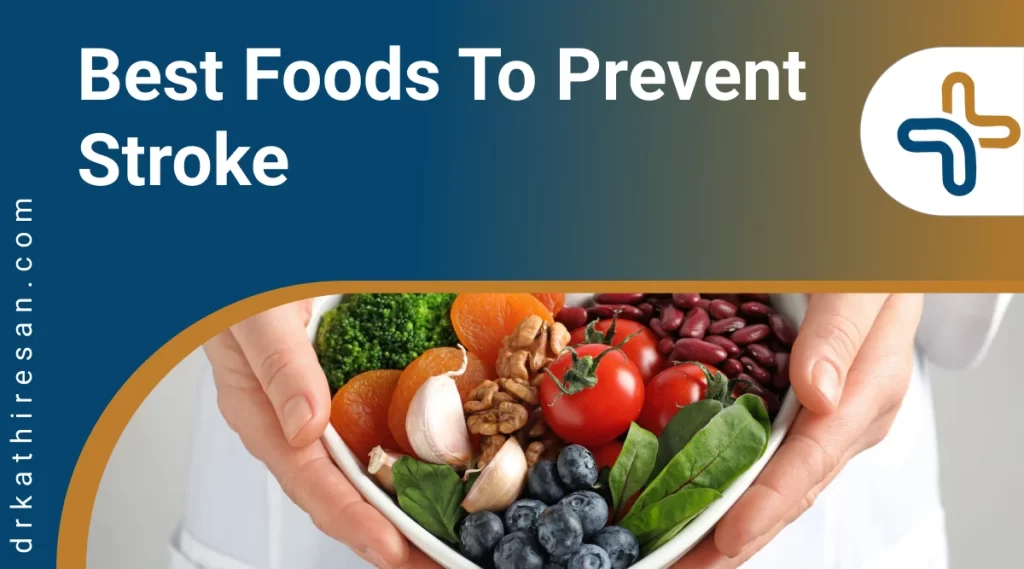Up to 80% of strokes can be prevented when you eat the right food full of nutrients. Because there are many Best Foods to Prevent Stroke, which we will discuss later in this blog. One thing you must take care of is your regular diet which helps to cut down your weight and keep your heart healthy.
There are many Foods To Avoid Stroke mostly fat-saturated food are a high risk of chances to have heart stroke, just avoid it; prevention is better than cure!
The Best Foods to Prevent Stroke are
A stroke occurs when there’s a disruption of blood flow to the brain, either due to a blockage (ischemic stroke) or bleeding (hemorrhagic stroke). While no single food can guarantee the prevention of strokes, a balanced and healthy diet can significantly reduce the risk factors associated with strokes. Here are some foods that are generally considered beneficial for stroke prevention:
Increase the Number of Fruits & Veggies
A few Foods To Avoid Stroke are taking of high cholesterol food like dairy products such as ghee, butter, cheese, etc that can increase your LDL cholesterol level in the body should be avoided.
Less use of sodium or common salt in your food, always garnish your table with green vegetables like spinach, carrot, beetroot, and tomato. Even if add fruits like oranges, apple and can also add some whole grains to your diet.
Lessen High-Cholesterol Foods
Red meat, butter, and fried food can harm your body and increase your risk of stroke. Instead of eating all your foods while frying is not good rather, you can try baking, broiling, and steaming your food. When you are choosing meat, buy meat like skinless chicken rather than buying red meat. You can substitute meat with Best Foods to Prevent Strokes like beans, peas, lentils, or tofu in your diet.

Eat Foods Rich in Omega-3
Omega-3 is a polyunsaturated fat which is the Best Foods to Prevent Strokes. Omega-3 is a good kind of fat that helps to rise your good” cholesterol. It has been seen to be the Best Foods to Prevent Strokes. You can find this Omega-3 in fish, flaxseed, and eggs.
Omega 3 lower bad cholesterol, which can prevent and reduce heat stroke. The American Heart Association recommends that taking at least fatty fish each week including salmon, mackerel, sardines, and herring are the Best Foods to Prevent Strokes. Consult the doctor and ask how much omega-3 you can intake on daily basis.
Limit the Amount of Alcohol You Drink
Alcohol drinking can rise your blood pressure, which is not good for your heart, and the risk of stroke. If you want to drink stick it to not more than two drinks a day for men and one drink a day for women. You can stick to red wine, too since it helps to heart and brain-protecting properties
Cut Down Your Salt Intake
Most have to carve to intake salty food sometimes like chips, nutty, etc it should be avoided strictly. Eating less sodium minimum,1,500 mg of sodium each day is the correct proportion to reduce your blood pressure and cholesterol. But here in India, most people take about 3,400 mg of sodium each day. So, it should be avoided, consuming as much less sodium is better.
Reduce adding salt in your cooking and even do not touch the salt shaker during your meal. Just to skip the salt, you can add natural herbs to add taste to your cooking like cinnamon powder, parsley, and Capricorn powder are the Best Foods to Prevent Strokes.
Salt can also be hidden inside packed processing foods like pizza, canned soup, bread, sandwiches, sauces, and deli meat which should be strictly “no” to eat. While shopping looks into the level of sodium you possibly can take in one day.
Consuming less salt can reduce your blood pressure and cholesterol which are the main reasons for heart stroke. Health is wealth so always eat the best foods that can prevent your heart stroke.
Preventing Strokes: 5 Essential Measures
Maintain a Healthy Diet
- Consume a diet rich in fruits, vegetables, whole grains, and lean proteins.
- Opt for foods with low saturated and trans fats, reducing the risk of cholesterol buildup in arteries.
Regular Physical Activity
- Engage in regular exercise to promote cardiovascular health and maintain a healthy weight.
- Aim for at least 150 minutes of moderate-intensity exercise per week.
Control Blood Pressure
- Monitor and manage blood pressure through lifestyle modifications and medications as prescribed by healthcare professionals.
Quit Smoking
- Smoking significantly increases stroke risk. Quitting smoking reduces this risk and contributes to overall cardiovascular health.
Manage Diabetes
- Effectively manage diabetes through medication, diet, and regular monitoring to prevent complications, including strokes.
Conclusion
This blog is the perfect guide on which foods to take and which food ought not to take. If you have heart issues, even if you do not have them; Just avoid eating those foods which are not best for your heart and health. Just read the blog you can get the idea of which food is poisonous and which foods are healthy.



